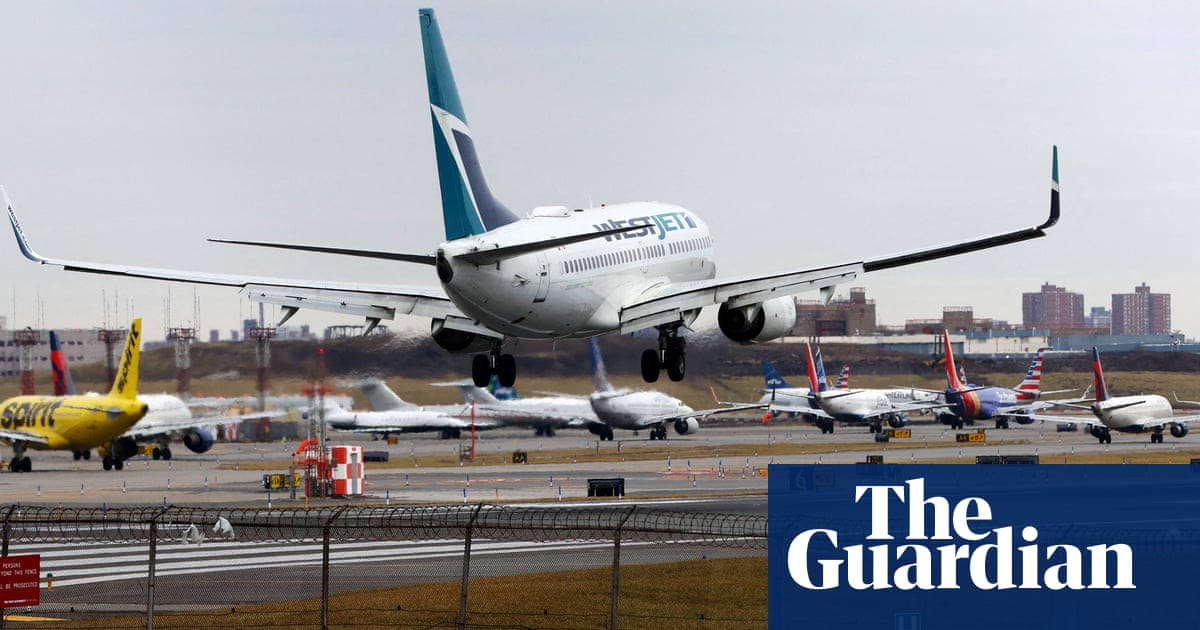
Campaigners have described the resignation of Pride in London’s co-chairs and senior directors as a landmark moment for the body and called for a fundamental rethink of how the UK’s largest Pride march operates.
Five directors including the co-chairs Michael Salter-Church, who founded the organisation, and Alison Camps resigned with immediate effect on Friday following a turbulent week amid allegations of a hostile environment for people of colour and bullying within the organisation.
Pride in London said Chris Joell-Deshields, the community engagement director, would take the position of interim co-chair, with another co-chair to be appointed in the next few days to help manage the process of recruiting permanent co-chairs.
A transitional board composed of some of the existing members will remain in place over the coming months. The board will engage with community stakeholders from minority groups to advise on an action plan that has been created in the last 48 hours to better support of people of colour.
A spokesperson for the organisation said: “Pride in London is committed to rebuilding the trust of minority communities which it knows is broken, but we hope not irreparably. We are aware that only through immediate and decisive action as well as demonstrable change in the coming weeks and months can we authentically show its commitment to diverse voices and experiences.”
The change in leadership follows the resignation of every member of Pride in London’s community advisory board (CAB) on Thursday, claiming there was a culture of bullying and a “hostile environment” for minority ethnic volunteers.
The board resignations came after several directors stepped down, including the most senior black volunteer, Rhammel Afflick.
Afflick, a former director of communications, said: “This is a milestone moment. But the accountability doesn’t stop here. An entirely new leadership with a robust mandate is needed to break away from Pride’s long history of getting it wrong for black and brown people in LGBT+ communities.”
This month Pride in London said it would allow the Metropolitan police to apply to take part in the annual parade, after calls to ban the force at the height of last year’s Black Lives Matter protests.
In its resignation letter, the CAB, made up of 10 individuals, called for the resignation of the senior leadership and an independent investigation by the mayor’s office. Their demands were backed by the LGBT charity Stonewall, which pulled out of the parade in 2018 because of the event’s perceived lack of diversity.
Ozzy Amir, the former chair and BAME representative of the CAB, criticised the statement released by Pride in London on Friday about changes to its structure and leadership. “The Black and people of colour community were owed an apology. Yet nowhere in this self-congratulatory statement will you see the words ‘sorry’. Nowhere will you see any of the issues on bullying or racism addressed or even acknowledged.” Afflick had also criticised the most recent statement.
He reiterated the call for every director to resign and said: “I welcome the resignations, but there is still a long way to go.”
Peter Tatchell, a patron of Pride in London who helped organise the first Pride in the UK in 1972 and has marched in every London parade since, has called for a full independent investigation from the London assembly into the allegations made by Afflick and the CAB.
Tatchell said: “Hopefully these resignations will force a wholesale reform of Pride in London. For several years it has been losing community support and confidence. Many of us feel that Pride has lost its way. It is far removed from the original Pride ideals, having become depoliticised and too commercial. Pride is now characterised by vague, apolitical themes rather than specific LGBT+ human rights demands.”
Tatchell criticised the organisation for allowing the Home Office, arms manufacturers and the police to march in the parade, and a policy that limits the number of people who can join the parade to just over 30,000 people.
He said: “It is time Pride reverted to a march for LGBT+ rights, with no motorised floats.”
Amir said: “The future of Pride needs to be rooted in our values and it should put our communities and the struggle for our collective liberation at its heart.”
Earlier his week a Pride in London spokesperson said the group wanted to “apologise to our volunteers and our communities – particularly people of colour and those from Black communities – for whom we’ve missed the mark in terms of support and inclusion”.
The spokesperson added: “We developed a diversity and inclusion strategy last year which we are in the process of implementing, though we are very much still on this journey.”












